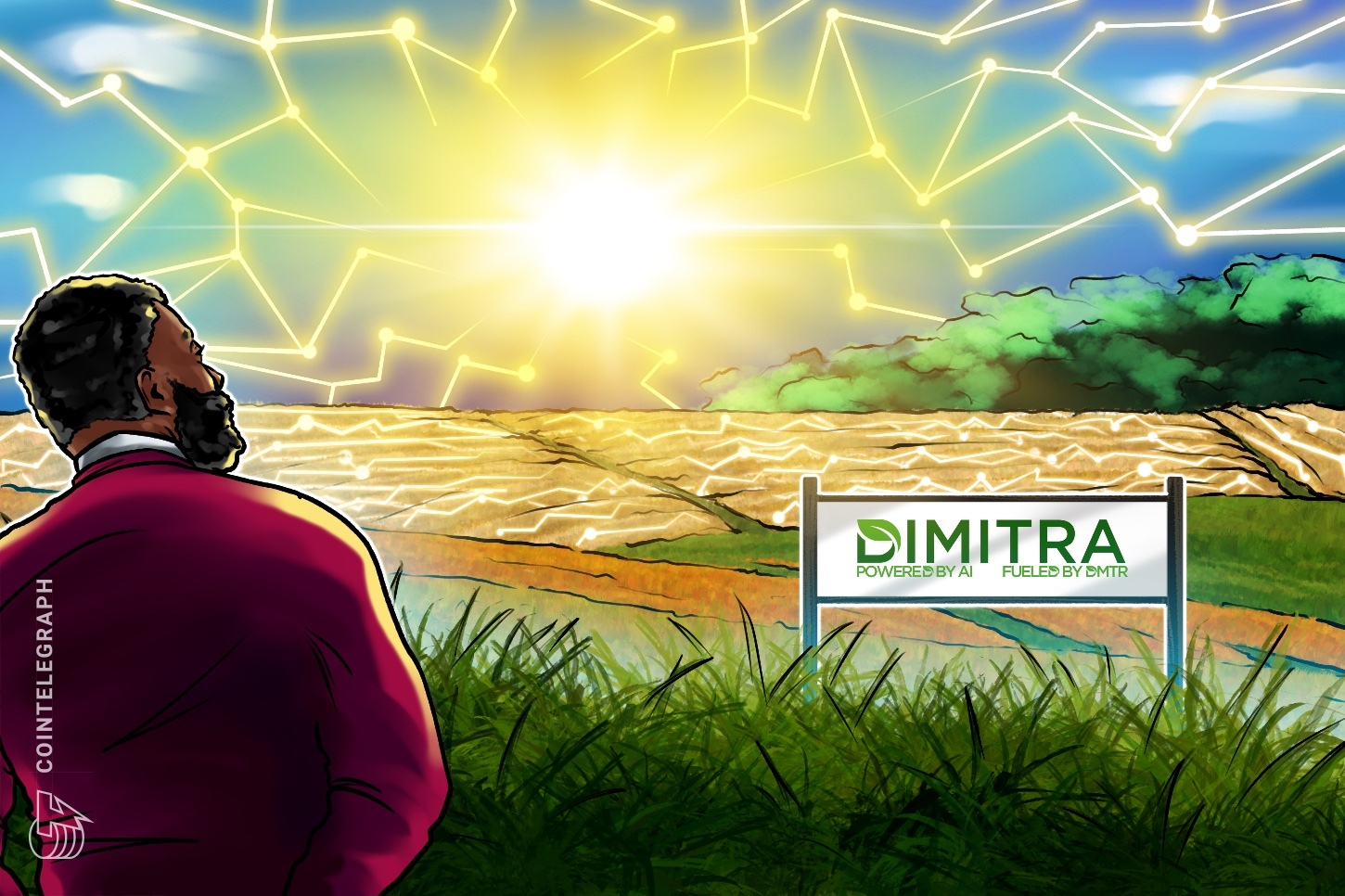Sponsored Content
Blockchain has a lot to offer to agriculture, helping the oldest industry reach a new dimension. Everything related to data and transactions can be enhanced with traceability, security, and speed. All of these features and benefits can transform agriculture and help it scale. With demand for food and agricultural products expected to jump 70% by 2050, scaling is more than a necessity.
Decentralized ledger technology (DLT) can be intelligently mixed with other innovative tech solutions, including machine learning, Internet of Things (IoT) devices, artificial intelligence (AI), satellites, and drone imagery, to augment the benefits.
The adoption of blockchain can help farmers and other players streamline supply chain processes to increase customer and stakeholder trust. Tracking the origin and transportation of a product can be done in real-time, with the blockchain providing an unmatched level of security for data storage and sharing. Traceability can transform insurance processes, speeding up processes that can take months.
One of the most active agricultural sectors adopting the technology is the coffee industry, the biggest segment in the market for hot drinks, and is expected to reach global revenues of $541 billion by 2025, driven largely by a continued boom in specialty coffees in food service. The largest coffee producers, including Brazil, Vietnam, Indonesia, and Colombia, should be interested in promoting the use of blockchain to boost revenues.

The coffee segment’s revenue will reach $495.5 billion in 2023. The market is expected to grow at a compound annual growth rate of 4.47% (CAGR 2023–2025). Source: Statista
How Indonesia’s Solok Radjo Cooperative is using blockchain
Indonesia is the fourth-largest coffee producer in the world. Coffee plantations cover more than 1 million hectares of the country’s territory, with over 90% of the land cultivated by small-scale producers.
Solok Radjo, a cooperative of over 3,000 coffee farmers based in West Sumatra, is using blockchain thanks to a partnership with Dimitra, a global AgTech firm.
Dimitra offers a wide range of solutions for the global agriculture industry, with its applications that combine blockchain with AI, IoT, satellites, and mobile technology, among others.
Solok Radjo uses Dimitra’s Connected Farmer and Connected Coffee applications. These user-friendly solutions help coffee farmers improve the value chain by streamlining data collection and sharing, quality assurance, coffee processing, cupping, and more.
One of the most painful challenges for coffee farmers, especially smaller ones, is to meet certification and other export requirements. Dimitra’s Connected Coffee app helps Solok Radjo implement food safety and growing requirements to be ready for its export markets, including the United States, Australia, and Europe. This increases profitability and benefits thousands of local farmers.

Dimitra’s Connected Coffee app provides end-to-end supply chain traceability and product quality management. Source: Dimitra
Thanks to its partnership with Dimitra, Solok Radjo is a forward-thinking agricultural collective that uses eco-friendly farming methods to cultivate their crops. They inspire coffee farmers to maximize the productivity of their lands. The cooperative handles the processing and marketing of the coffee, allowing farmers to reap the benefits. The ecosystem also includes cattle as an integral element that serves multiple purposes: providing protein for humans, diversifying income through domestic sales, and improving soil health through the use of manure on plantations.
Blockchain benefits farmers worldwide
Dimitra offers blockchain and tech solutions for different agricultural sectors worldwide. Its flagship product is Connected Farmer, which empowers small- and large-scale farmers by improving the supply chain and helping with finance. The application incorporates multiple module components, including:
- My Farm — helps farmers register their businesses and record critical farming operations.
- My Crops — used to track crop inputs and fertilizers. It involves field-level sensors and integrated satellite imaging to offer data and AI-based analytics.
- My Livestock — this module tracks the value chain of livestock, including birth, vaccinations, illnesses, sale, export, and logistics.
Future services are already planned, such as Lending, which will enable farmers to borrow funds for inputs like seeds, fertilizer, and chemicals and repay the loan at harvest. Additionally, the module Insurance that is also on the roadmap will assist farmers in managing their insurance documents and data, providing protection against drought, floods, and pests. Payouts will be determined based on insights from satellite imagery or government reports.
Dimitra’s ecosystem, which revolves around the Connected Farmer app, is fueled by the native Dimitra Token. The ERC-20 token incentivizes farmers to perform certain actions and is used for financing within the ecosystem.
Thanks to blockchain technology, farmers can increase their profitability by focusing on the quality of their products and expanding their reach.
Disclaimer. Cointelegraph does not endorse any content or product on this page. While we aim at providing you with all important information that we could obtain in this sponsored article, readers should do their own research before taking any actions related to the company and carry full responsibility for their decisions, nor can this article be considered as investment advice.
Disclaimer.This content is part of a paid partnership. The text below is a sponsored article that is not part of Cointelegraph.com editorial content. The material is written by our advertorial team and has undergone editorial review to ensure clarity and relevance, it may not reflect the views and opinions of Cointelegraph.com. Readers are encouraged to conduct their own research before taking any actions related to the company. Disclosure.


